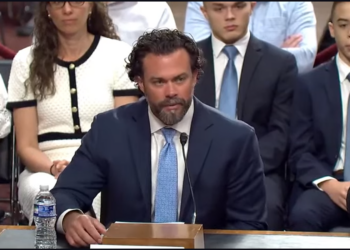Authoritative parenting, i.e., parenting that uses natural or set consequences for child discipline, is seeing a comeback. The heretofore prevalent opposing style, gentle parenting, is centered on respect and validation; parents usually see themselves as the reason for their children’s bad behavior and then explain this to their kids at length.
Gentle parenting operates under the idea that every person is basically good, and with enough calm elucidation, children will make the right choice. It’s a lovely idea — in theory. The problem is that as humans, children are not mostly good and will often choose to do the wrong thing — sometimes just to see what happens next.
Enter the resurgence of authoritative parenting, which The Wall Street Journal has labeled as “F*** Around and Find Out” (FAFO) parenting. It’s when parents hold the line on boundaries and don’t intervene when the consequences of a child’s poor behavior come to bite him or her in the derrière. Here are some examples of this style in action:
- Your toddler continually throws his toy out of the stroller. After you warn him not to do it again, he inevitably does, and the consequence ensues; the toy is left where it was thrown to the ground.
- You cut off phone privileges for your teenage daughter after she breaks a rule regarding phone usage.
- You make your children go to piano lessons even after they’ve decided they don’t like it because a) you’ve already paid for it, and b) they need to learn to follow through on their commitments.
This style of parenting builds resiliency in kids, particularly when paired intrinsically with building a strong relationship along the way. Children learn to trust you by knowing you’ll hold the line on boundaries, and they’ll also learn to trust themselves because they know where the boundaries are.
The term “FAFO” originally came from a meme of Donald Trump in a fedora that the president posted in response to Colombia trying to mess around with the U.S. But it’s been ubiquitously appropriated, including for parenting. According to The Wall Street Journal, FAFO parenting distinguishes two philosophies that are politically charged:
The parenting debate reflects a divided country. The paradigm of gentle parents vs. FAFO parents isn’t quite Snowflake Kids vs. MAGA Kids, but there’s a whiff of that. Not in actual politics, but in style. Hard-line parenting is necessary for a child’s survival in a harsh world, said FAFO father of five Jon Wellington. The era of the participation trophy is over, he said. “It caused us to get a little soft.”
It’s not just parenting in which this trend is showing a resurgence. It’s also regaining popularity in public schools that are taking a strong stance against kids who are being dangerously disruptive in the classroom. Under former President Joe Biden, the school equivalent of “gentle parenting” was holding court. Kids who assaulted teachers with their fists were sent to the school psychologist, effectively given a lollipop, and then sent back to the classroom. Their misbehavior escalated, and teachers had no recourse. Now, many of these same schools are adopting a more authoritative approach. They are enforcing boundaries and dispensing proper consequences for terrible student behavior. The goal is to make classrooms respectful learning spaces once again.
The problem with gentle parenting isn’t necessarily that it coddles children. It oftentimes makes them egomaniacs who believe everything in the world revolves around them. Ergo, if they misbehave, their parents are to blame. Authoritative parenting puts the responsibility back on the child to govern their own actions and words. Hopefully, we’ll start seeing the fruits of this change over the next few years with stronger, more resilient kids.
















